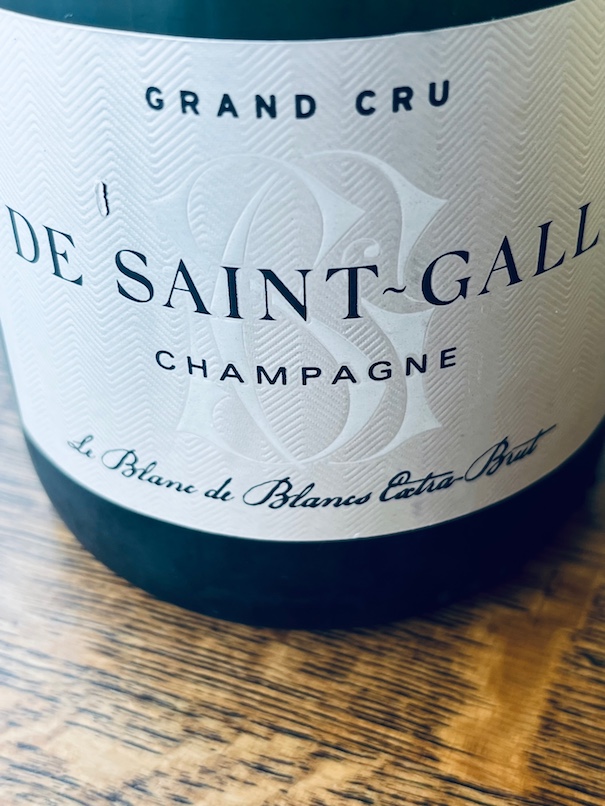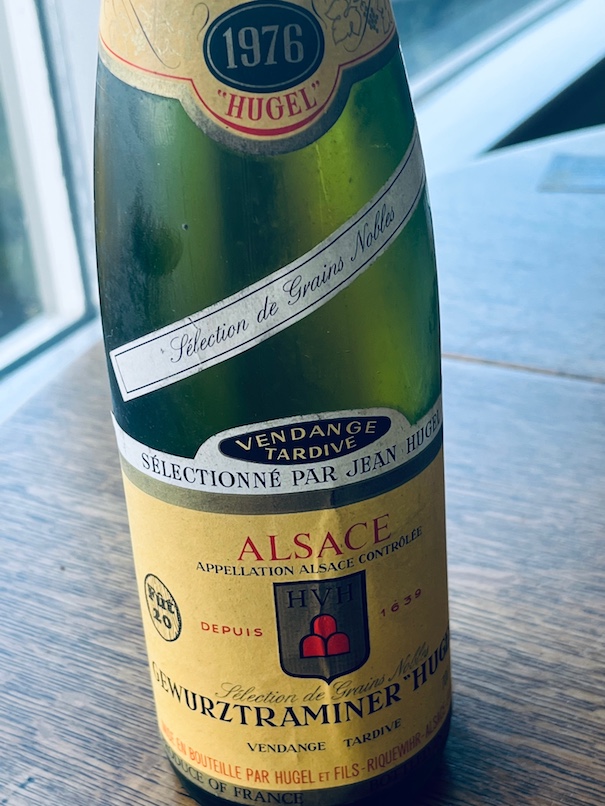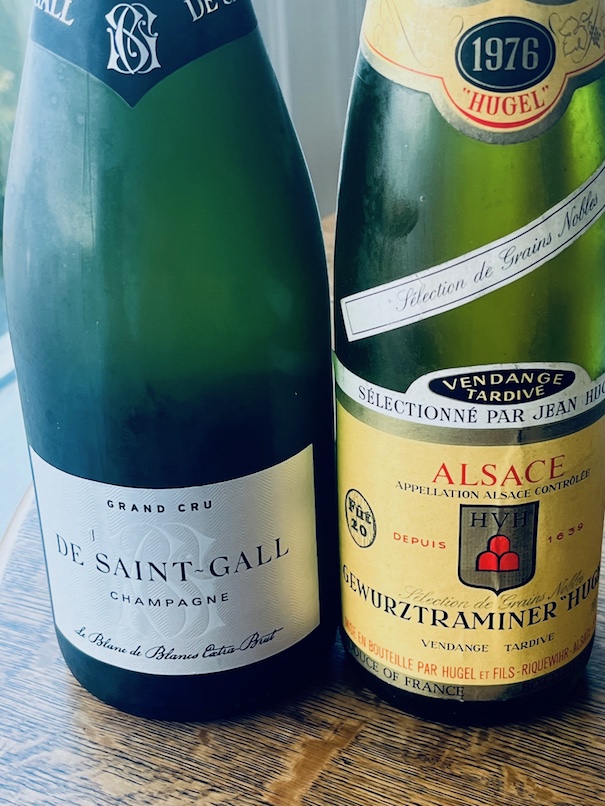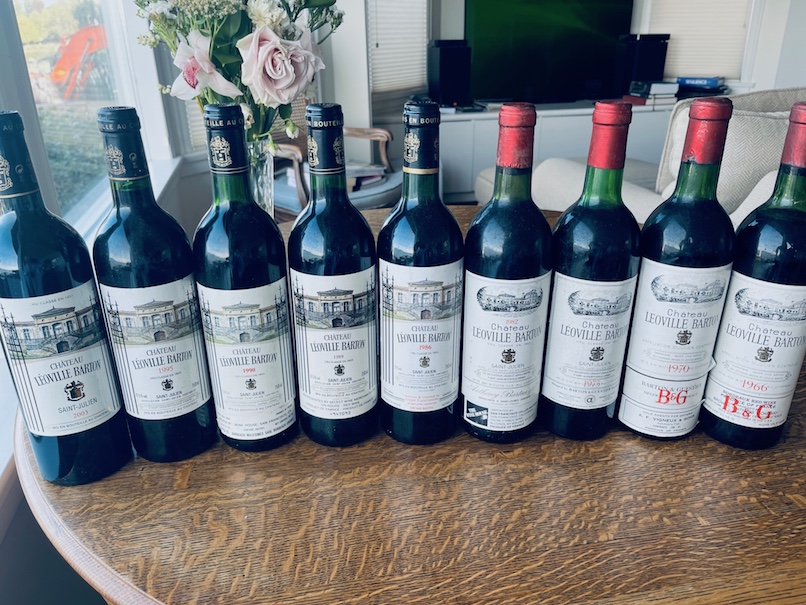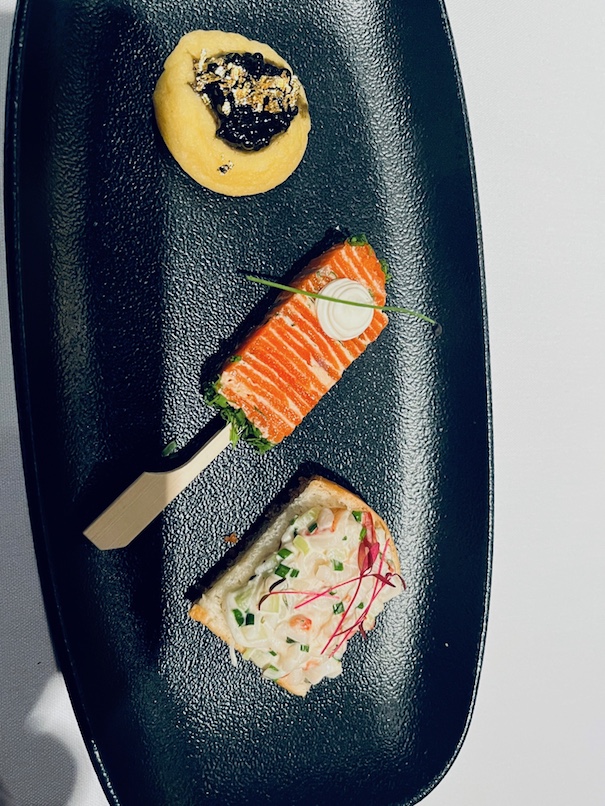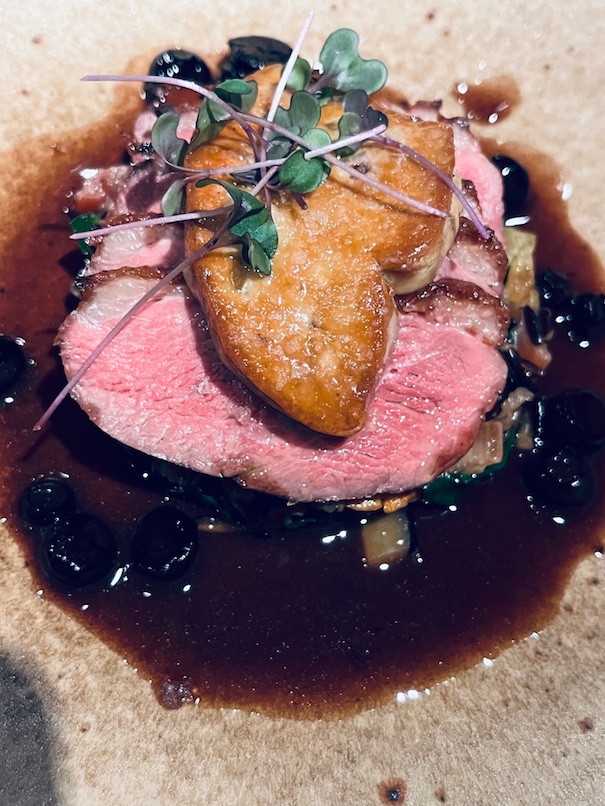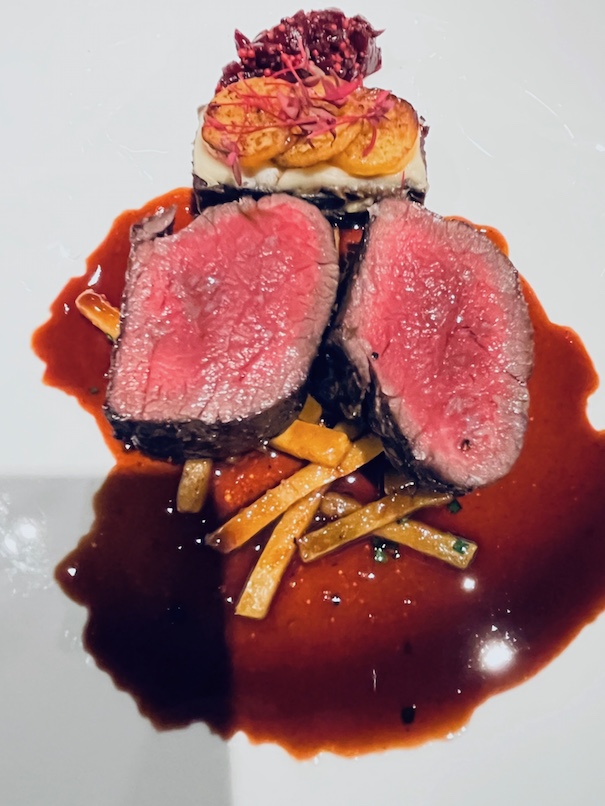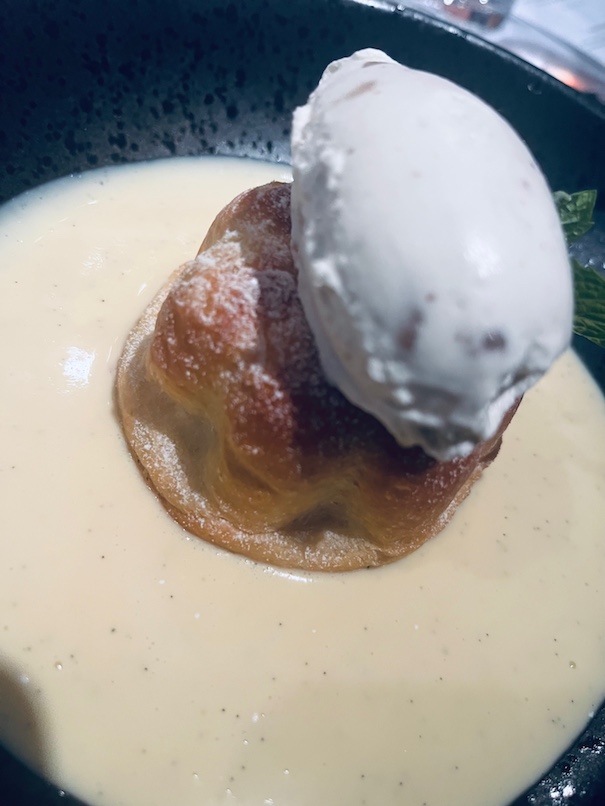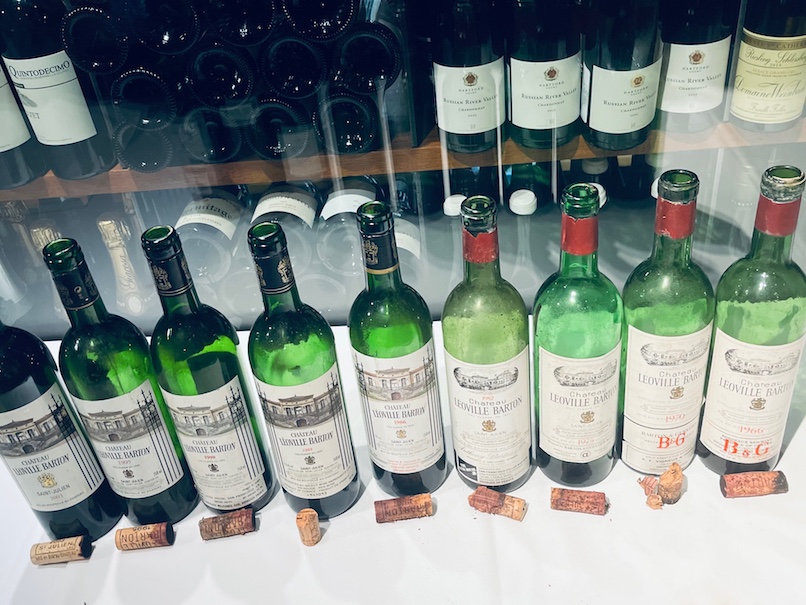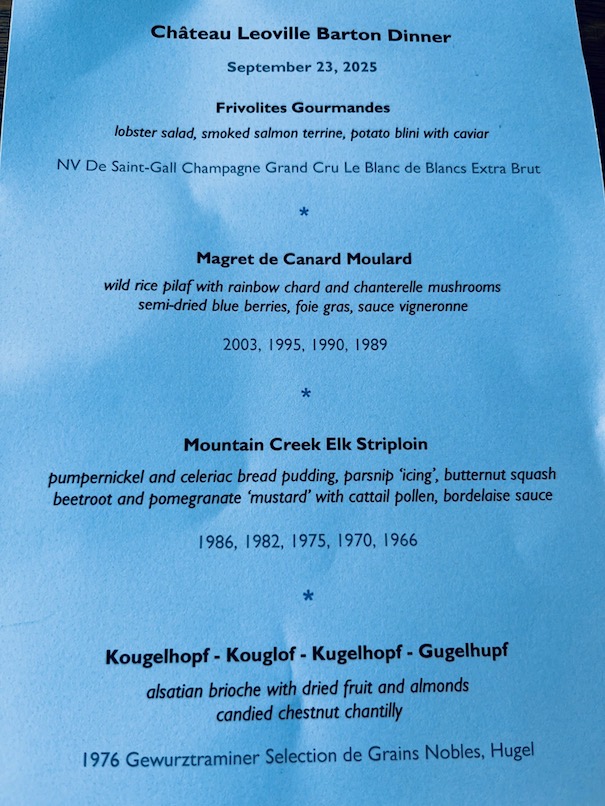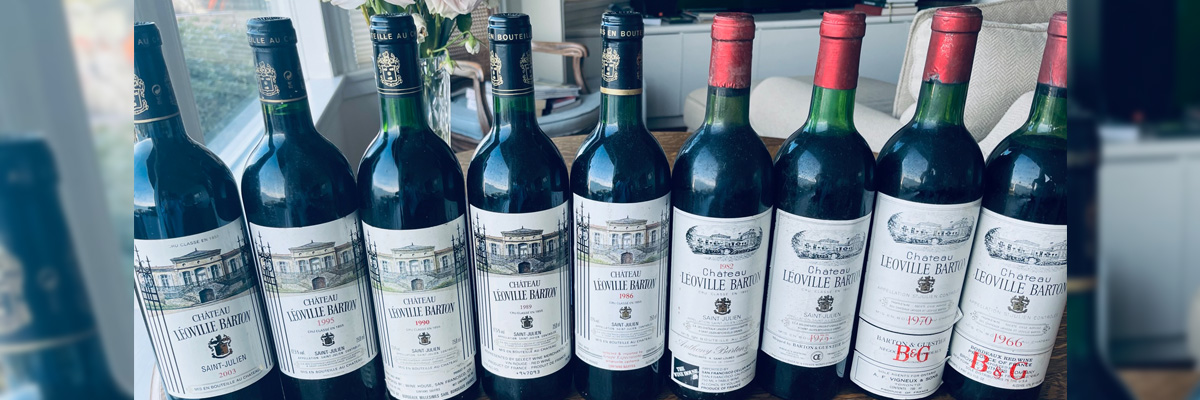
Over the past decades several Bordeaux wine properties have been recognized for producing the very best quality for a most reasonable price paid. Certainly there are some Cru Bourgeois plus wines listed in the 1855 Bordeaux Classification and outside it that have and continue to provide good value. However it is hard to find one as universally accepted as value for price as the Second Growth Chateau Leoville Barton from Saint-Julien. This Estate has been continuously owned over 200 years by the Barton family dynasty (early wine merchants from Ireland with Thomas Barton arriving in Bordeaux in 1725) with the smart purchase by Hugh Barton of Langoa property in 1821 followed by 25% of the Leoville property in 1826. Ronald Barton (1902-1986) arrived in 1924 and retired in 1984 after 60 years at the helm. Anthony Barton (1930-2022) followed his uncle Ronald starting in 1983 with revitalizing the vineyards and cleaning up/modernizing the cellars. Anthony has been followed by his daughter Lilian (Lily) Barton-Sartorius and her children the 10th generation with Melanie Barton-Sartorius & Damien Barton-Sartorius. What an amazing family history that really needs celebrating!
On September 23, 2025 the Vancouver Group of Eight held Event #134 at Blue Water Cafe with a fantastic five decade retrospective of nine vintages from 2003 back to 1966 of Chateau Leoville Barton. All wines had been cellared well since their initial release being provided from one source namely yours truly. They were all served professionally by Blue Water Sommelier staff at the same cool temperature for assessment decanted just immediately before table service. My impressions on the wines:
We started with NV DE SAINT-GALL GRAND CRU LE BLANC DE BLANCS EXTRA BRUT from the super Coop founded in 1966 as Union Champagne in Avize of only Grand Cru & Premier Cru growers now numbering around 2300. Good to remember there are only 17 Grand Cru of 100% rated vineyards and 44 Premier Cru rated 99%-90% (7500 acres of 1er Cru representing 22% of total Champagne vineyards). This bottle recently acquired at the Paris Duty Free was fresh apple lemon delicate of 100% Chardonnay pure fruit capturing the terroir stony minerality of top vineyards with minimal sugar but still a bit too young. Good value. Their Prestige Orpale, tasted recently, is all Grand Cru Chardonnay on its lees for 12 years with a more creamy complex statement.
We finished with a historic bottle of 1976 HUGEL GEWURZTRAMINER SELECTION DE GRAINS NOBLES (SELECTION FUT 20 PAR JEAN HUGEL). The Hugel house in Riquewihr Alsace has been producing wine there over 380 years (since 1639). MIchael Broadbent reports that Pioneer Jean Hugel told his son Johnny that 1976 was a great perfect vintage for rich late harvest wines that never in his life had he seen better grapes so “he had better not make a mess of them.” Johnny told me his best barrel was Fut 20 and sent us this showing exceptionally high natural sugar 100% botrytis affected grapes being so openly fragrant on the bouquet of fresh ripe honeyed spicy peach and syrupy figs. Almost the best liqueur possible at only 13.7 abv. At 50 years of age a memorable wine treasure indeed!
2003 LEOVILLE BARTON SAINT-JULIEN: Estate has an admirable forest land and sustainable philosophy growing roughly 72CS/20M/8CF from vineyards behind the town running west towards Talbot with the wine made at Langoa. Used here 74/23/3 blend (Langoa 57/34/9) picked September 11-22 using 70% new oak. This hot year vintage had heat spikes with 16 days over 95F (compared to 2009/4days, 2005/6 days, and 2000/2days) but is excellent with lower acidity and higher tannins. Really captures the pure savoury Cab Sauv styling of Barton with that smoky black currant cigar box statement. Big success in 2003. Highly recommended
1995 LEOVILLE BARTON SAINT-JULIEN: More 78CS/19M/3CF with dark colour showing some dense raspberry and herbal tobacco notes but still somewhat backward slow evolving. Typically Barton of young energy restrained concentrated claret that needs patience as has big tannins when young – or 30 years old. Potential there.
1990 LEOVILLE BARTON SAINT-JULIEN: Tasted this vintage many times. Usually outstanding intense full bodied 70CS/25M/5CF always improving. This is not the best bottle of 1990 as it surprises your scribe with lighter rim than 1989 and more forwardly open bouquet of property medicinal iodine trademark. Still fresh and wonderful but less tannic than the previous usual riper sweet rich tannins bottles. Beauty. Variation.
1989 LEOVILLE BARTON SAINT-JULIEN: Very dark and deep right to the rim. Surprised that it is less open than 1990 but has concentrated elegance. Same Bordeaux blend as 1990 but very good rich bottle here. No rush.
1986 LEOVILLE BARTON SAINT-JULIEN: Know this vintage of Barton so well and 1986 never disappoints. Still so young with 78CS/20M/2CF concentrated powerhouse of cassis licorice with an unlimited future. Acquire some of this at auction. Fabulous already but will become even more complex with further cellaring. Bought in January 1990 for the steal price of $13.33! A winner.
1982 LEOVILLE BARTON SAINT JULIEN: Blend was 72CS/20M/8CF but shows that rustic note from unclean cellars. Classic St. Julien fruit underneath. Fred Withers found it “more cloudy with wet cardboard”. Historic vintage in 1982 but this is not clean enough. Anthony Barton always told me (with John Avery on many visits) that “it is more rustic than modern vintages and with no new oak”. When I told him his wine was always selling too cheaply priced he retorted that “he is reasonable but others are too expensive”. He told Ian Mottershead on his low pricing question that “I make enough”. What a great family attitude. Anthony won the Decanter Man of the Year in 2007 and was declared as the “Consumer Champion – not the Speculator.” 1982 disappoints for the overall quality of the vintage.
1975 LEOVILLE BARTON SAINT-JULIEN: Under rated St. Julien from a difficult overly tannic year now mature. Red with a paling edge with that typical identity mark of medicinal iodine. Ian found “cigar-box with 1975 leanness in the old style of St. Julien”. Needs drinking up at 50.
1970 LEOVILLE BARTON SAINT-JULIEN: Good bottle of Barton at 55 years! Always had the most fruit intensity in 1970 of the Leoville trio over Las Cases & Poyferre. Old interesting classic claret holding well for sure. Some lovely spices on the nose of cinnamon & sweet basil are complex and enticing. Bought for $12.60.
1966 LEOVILLE BARTON SAINT JULIEN: Surprise of the night! Amazing outstanding bouquet of cigar box autumn sous-bois and taste of magnificent sweet toffee. Nearly 60 but fresh with defined St Julien poise and length of flavour. Bought for $8.95 in the good old days. Certainly helped to last by the Michael Broadbent description of “1966 long distance runner acidity”. You perhaps have to appreciate lighter no fruit left wines but with complexity to admire the height of this enjoyment given but search for it. Worth it! My last bottles of 1975, 1970, and 1966 but lots of delightful dining with them at dinner over many decades at different stages of development. More bottle variation in the 60s, 70s, and early 80s than afterwards. Both an education and an aged treat. Support Leoville Barton.
You might also like:
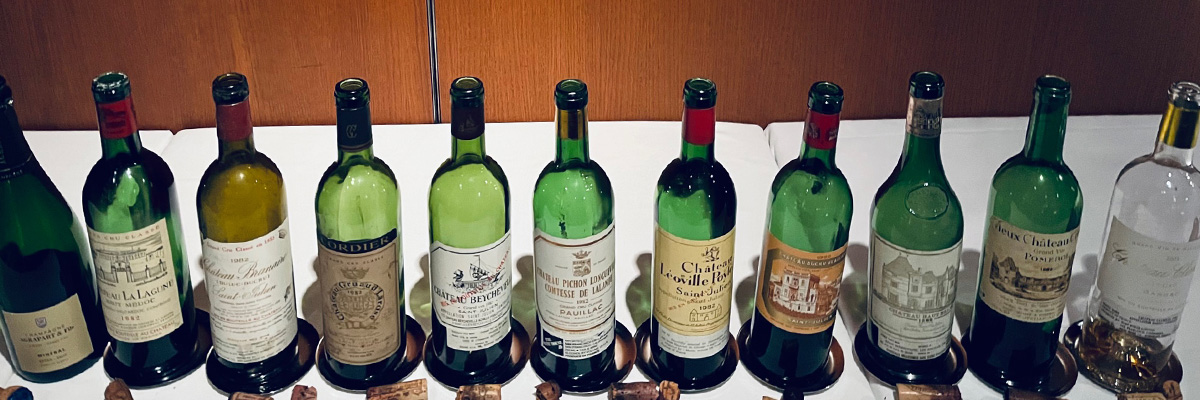 |
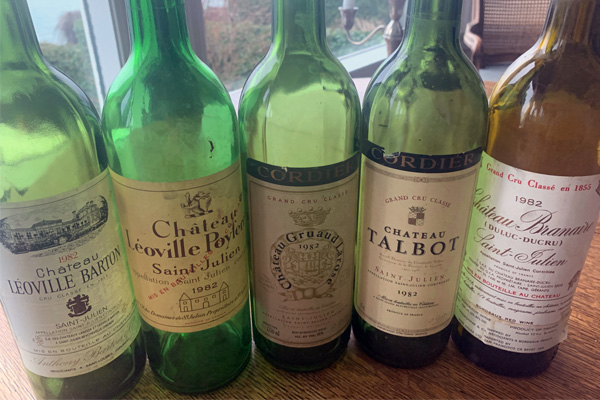 |
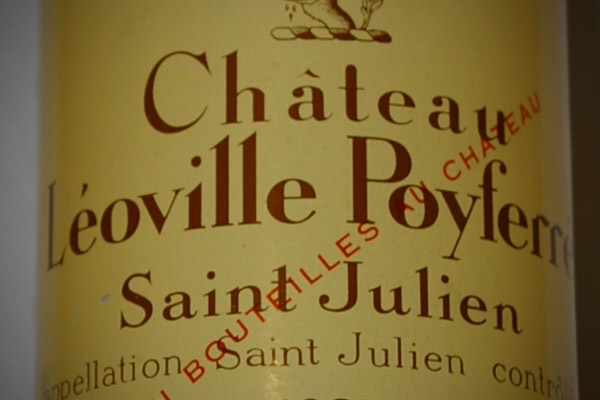 |
